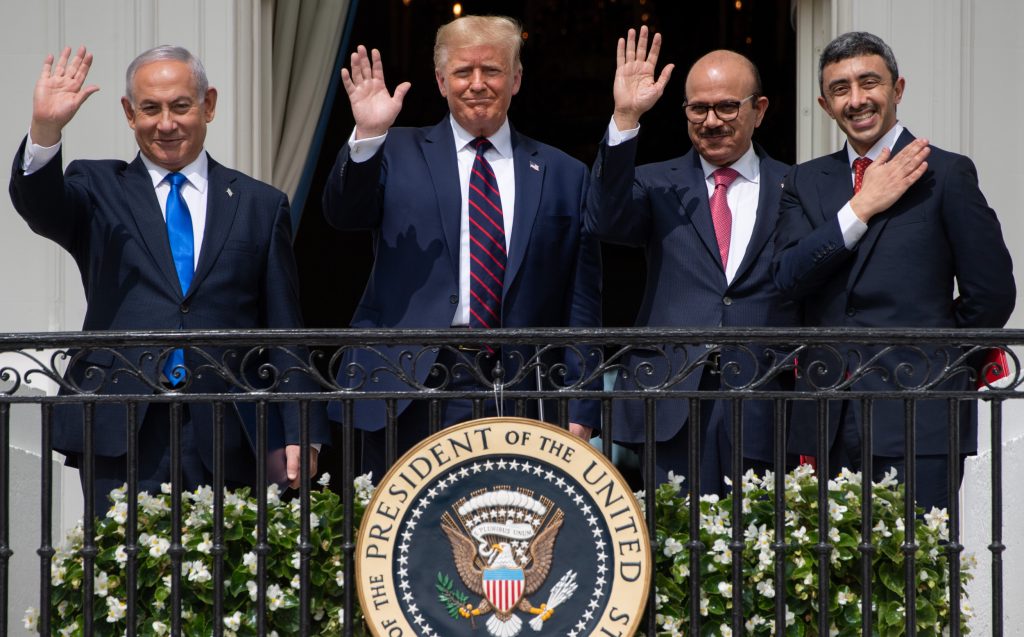Donald Trump’s return to the presidency presents an opportunity to build upon the foundation laid by the Abraham Accords, a landmark achievement that normalized relations between Israel and several Arab states. A strategic expansion of these accords to include three key nations in the Caucasus and Central Asia – Azerbaijan, Kazakhstan, and Uzbekistan – offers significant potential benefits for both the United States and its regional allies. These Muslim-majority countries, with long-standing positive relationships with Israel, represent a bridge to a region crucial for global stability and economic growth.
Azerbaijan, Kazakhstan, and Uzbekistan established ties with Israel shortly after gaining independence from the Soviet Union in 1991. These relationships have endured, encompassing cooperation in areas such as security, agriculture, and tourism. Despite regional tensions and global events, these nations have maintained their strategic partnerships with Israel, demonstrating a commitment to tolerance and peaceful coexistence. This steadfastness underscores their suitability for inclusion in the Abraham Accords framework. Furthermore, these nations have proven themselves valuable partners to Israel, providing economic and strategic benefits while also actively combating extremism within their own borders.
Expanding the Abraham Accords beyond its initial focus on Arab-Israeli normalization serves a broader purpose. The Accords offer a platform for enhanced cooperation between the United States, Israel, and like-minded Muslim nations committed to shared values. Incorporating Azerbaijan, Kazakhstan, and Uzbekistan into this framework strengthens the alliance of moderate voices in the region and provides a counterbalance to the influence of extremist ideologies. Moreover, it offers the United States a strategic foothold in a region vital to its interests, particularly given the geopolitical challenges posed by Russia, China, and Iran.
Central Asia, rich in natural resources like uranium, lithium, tantalum, and natural gas, plays a critical role in global energy security. Kazakhstan and Azerbaijan also hold significant positions in the Middle Corridor, a trade route designed to bypass both Russia and Iran, connecting China and Europe. Developing and securing this corridor has become a key objective for the United States, especially in light of Russia’s aggression in Ukraine and Iran’s destabilizing actions in the Middle East. The inclusion of these Central Asian nations in the Abraham Accords would further solidify their alignment with the West and diminish their reliance on Russia, China, and Iran.
Israel’s existing strong ties with these Central Asian countries provide a unique advantage for the United States. Israel’s significant population of immigrants from the region fosters cultural understanding and facilitates economic and security cooperation. Azerbaijan, for instance, is a major supplier of oil to Israel and a key partner in defense cooperation. Kazakhstan also provides a substantial portion of Israel’s oil imports. These established relationships can pave the way for expanded U.S. engagement in Central Asia, fostering economic ties and enhancing regional stability.
Beyond the strategic and economic benefits, expanding the Abraham Accords to include Azerbaijan, Kazakhstan, and Uzbekistan sends a powerful message to the international community. It showcases the existence of a significant segment of the Muslim world that embraces tolerance, peace, and coexistence. These secular nations, while guaranteeing religious freedom for their citizens, have actively combatted Islamist extremism within their borders. Their inclusion in the Accords highlights their commitment to countering radical ideologies and strengthens the global coalition against terrorism. This alliance also provides a platform for sharing expertise and resources in counterterrorism efforts, further enhancing regional security.
Furthermore, these Central Asian nations stand to gain significantly from joining the Abraham Accords. Membership provides access to the vast U.S. consumer market and strengthens their relationships with Washington, offering a buffer against the pressures exerted by neighboring powers. The Accords also leverage Israel’s role as a trusted intermediary, facilitating better understanding and cooperation between the United States and the Central Asian nations. This strengthened relationship can help these nations navigate the complex geopolitical landscape and maintain their sovereignty in the face of external pressures. Ultimately, expanding the Abraham Accords offers a win-win scenario, bolstering regional stability, promoting economic growth, and strengthening the fight against extremism. This strategic move represents a significant opportunity to advance U.S. interests while simultaneously empowering moderate voices in the Muslim world.










